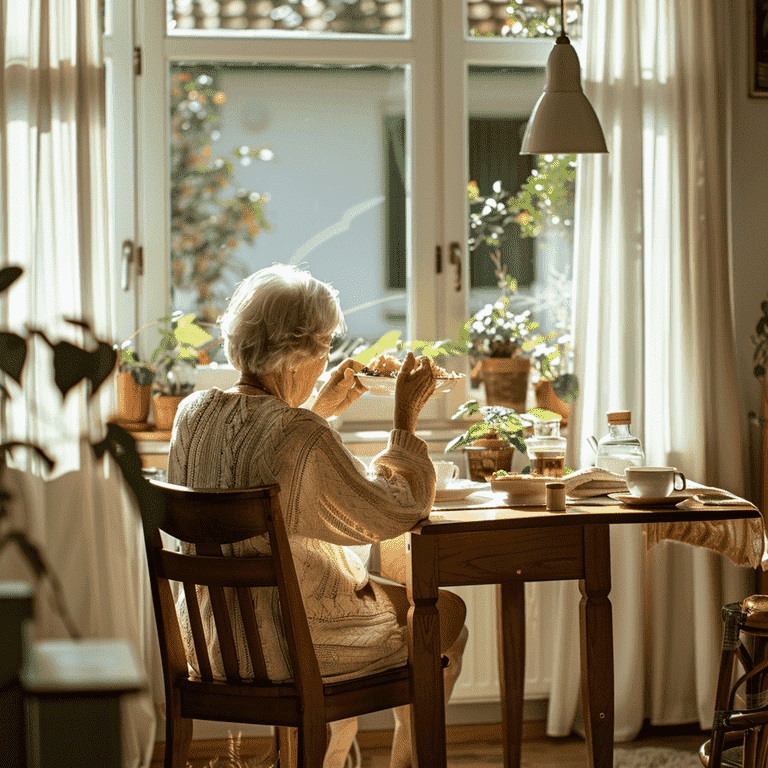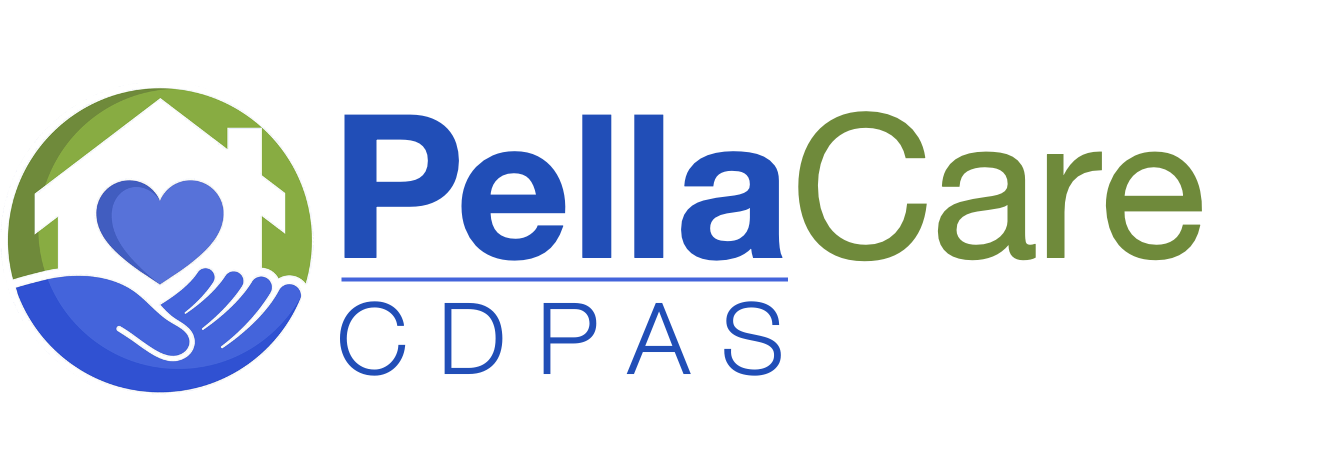Introduction
As individuals age, they may encounter challenges in performing daily tasks that were once routine. These tasks, known as Activities of Daily Living (ADLs), are essential for maintaining personal health and well-being. For seniors requiring assistance with ADLs, caregivers play a pivotal role in enhancing their quality of life by offering the necessary support while preserving their dignity.

Enjoying a meal is one of the common activities of daily living.
What Are Activities of Daily Living?
Activities of Daily Living encompass the basic self-care tasks that individuals must perform regularly. These tasks are often divided into two categories: Basic ADLs and Instrumental ADLs (IADLs). Understanding the differences between these categories is crucial for caregivers and healthcare professionals to assess the level of care required.Basic Activities of Daily Living (ADLs)
Basic ADLs are fundamental self-care activities that are essential for daily living. These include:- Bathing: Ensuring personal hygiene by cleaning the body.
- Dressing: Choosing and putting on appropriate clothing.
- Grooming: Maintaining personal appearance, including hair and nail care.
- Eating: The ability to feed oneself.
- Toileting: Managing personal bathroom needs.
- Transferring: Moving from one place to another, such as from bed to chair.
Instrumental Activities of Daily Living (IADLs)
Instrumental ADLs are more complex tasks that are necessary for independent living. They require higher cognitive and physical functioning and include:- Managing Finances: Handling money, paying bills, and budgeting.
- Shopping: Acquiring groceries and other necessities.
- Meal Preparation: Planning, cooking, and cleaning up after meals.
- Medication Management: Taking prescribed medications on time and managing health conditions.
- Transportation: Driving or arranging transportation for appointments and errands.
- Housekeeping: Cleaning and maintaining a home environment.
- Using Technology: Operating phones, computers, and other devices.
Key Activities of Daily Living for Senior Care
While all ADLs are important, some are more critical to a senior’s health and well-being. Here are a few of the most essential ADLs and why they matter:- Dressing: Selecting appropriate clothing and dressing independently is vital for maintaining self-esteem and comfort. Caregivers assist seniors in dressing, ensuring safety and appropriateness.
- Bathing and Toileting: Maintaining hygiene through regular bathing and managing toileting needs are fundamental for preventing infections and ensuring dignity. Caregivers provide support while respecting privacy.
- Meal Preparation: Proper nutrition is essential for seniors’ health. Caregivers assist in meal planning, preparation, and ensuring that seniors receive balanced, nutritious meals.
- Mobility and Transferring: Moving safely around the home and transferring between surfaces, such as from bed to chair, are critical for preventing falls and promoting independence. Caregivers support these activities to enhance mobility.
- Shopping and Errands: Acquiring daily necessities and running errands are crucial for maintaining independence. Caregivers often assist with these tasks, ensuring seniors have everything they need.
- Medical Management: Managing medications and health conditions is vital for seniors’ well-being. Caregivers ensure that medications are taken correctly and on time, and monitor for any health changes.
- Managing Finances: Proper financial management is necessary to prevent exploitation and ensure access to necessary resources. Caregivers may assist seniors with budgeting, paying bills, and other financial tasks.
- Promoting Independence: By identifying areas where assistance is needed, caregivers can create a care plan that encourages seniors to maintain their independence as much as possible.
- Preventing Injuries: ADL assessments help identify potential risks, such as mobility challenges, that could lead to falls or other injuries. Caregivers can then implement measures to reduce these risks.
- Ensuring Appropriate Medical Care: Early identification of limitations through ADL assessments allows for timely medical intervention, improving health outcomes.
- Regular Physical Exercise: Strengthens muscles and improves balance, making daily tasks easier.
- Assistive Devices: Tools like grab bars and raised toilet seats can increase safety and ease of use.
- Occupational Therapy: A therapist can provide targeted exercises and techniques to enhance ADL skills.
- Home Modifications: Adjusting the home environment to eliminate tripping hazards and improve accessibility.

Recent Comments